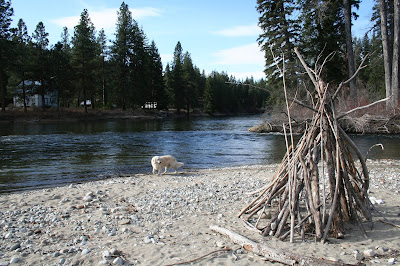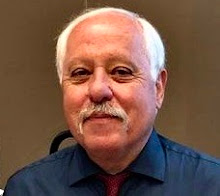We all know that dogs are loyal, friendly and kind. My motto? "In dog we trust." But what does the year of the dog mean astrologically? According to dogtime.com, “Familial relationships will be of importance, and the year will be a year of hope.” So, without further ado, and with dog as my witness, here is the year in review.
The year began with the news that we would be expecting our first grandchild. In February, it was off to Astoria for the annual Mud Bowl. Took two road trips to Seattle, in March for a professional development tour with UO PRSSA, and April for the PRSA North Pacific District conference, with a side trip to the Owl Conservatory.
The year began with the news that we would be expecting our first grandchild. In February, it was off to Astoria for the annual Mud Bowl. Took two road trips to Seattle, in March for a professional development tour with UO PRSSA, and April for the PRSA North Pacific District conference, with a side trip to the Owl Conservatory.
In June, it was “buon viaggio” as we departed for the Italian Riviera to celebrate our anniversary. Based in Genoa, we explored the Cinque Terre by boat en route to Portovenere on the Bay of Poets. Accompanied by our cab driver/interpreter extraordinaire Andrea, we also visited our Italian cousins, the Sanguinetis, in Isolona.
In July, GonzoPR passed 100,000 page views, thanks to readers like you. The most popular post this year? A book review of Order of Time by Italian physicist Carlo Rovelli, who uses a conversational approach in explaining complex scientific concepts like general relativity, quantum mechanics, cosmology and thermodynamics.
Rovelli untangles the most complicated advances in science, and explains the nature of time. His perspective on death caught my attention at the end of the book. “Death does not alarm me,” he wrote. “It did not scare me when I was young, and I thought at the time that this was because it was such a remote prospect.”
“The fear has yet to arrive. I love life, but life is also struggle, suffering, pain. Our fear of death seems an error of evolution. Many animals react instinctively with terror and flight at the approach of a predator -- a healthy reaction, one that allows them to escape danger. But it’s not something that remains with them constantly.”
“Fearing transition, being afraid of death, is like being afraid of reality itself; like being afraid of the sun. Whatever for? That is the rational version. But our lives are not driven by rational arguments. I would not wish to live as if I were immortal. I do not fear death. I fear suffering. Life is a precious miracle. We can smile now.”
The month of August would present a whirlwind of activity. For starters, we moved my father’s entire household from Oregon to Arizona, battling triple-digit heat and wildfires the whole length of the state of California on a road trip straight out of Dante’s Inferno. Later that month, we welcomed our first grandchild into the world.
The month of August would present a whirlwind of activity. For starters, we moved my father’s entire household from Oregon to Arizona, battling triple-digit heat and wildfires the whole length of the state of California on a road trip straight out of Dante’s Inferno. Later that month, we welcomed our first grandchild into the world.
In September, we would squeeze in one more trip to the Owl Conservatory before the school bells would ring once again. Then, it was off to Austin, Texas for the 2018 Public Relations Society of America International Conference with the UO Chapter of the Public Relations Student Society of America in October.
As we approached the holidays, we celebrated a couple of milestones and are settling into our new roles as grandparents. As the “year of the dog” winds down, it turns out the predictions were true; it will be “a good year in all respects, but it will also be an exhausting year.” I’ll be doggone if they weren’t right.



















